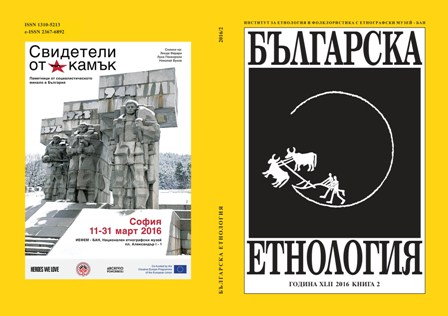
We kindly inform you that, as long as the subject affiliation of our 300.000+ articles is in progress, you might get unsufficient or no results on your third level or second level search. In this case, please broaden your search criteria.

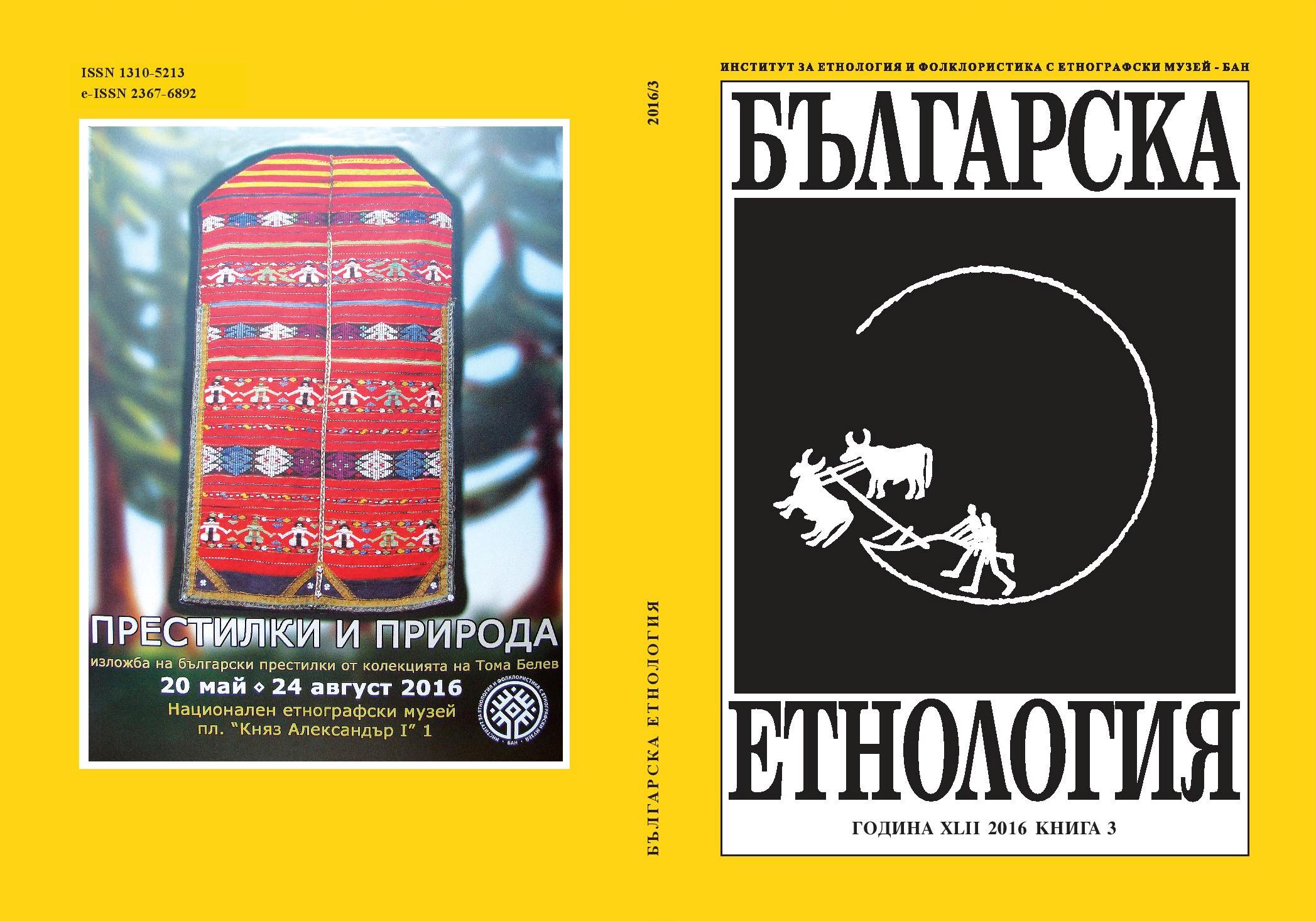
This article discusses the role of gifts and hospitality in Bulgarian peasant tradition in the context of peasant society structure: small and middle size family households organized to overcome difficulties and constraints of an underdeveloped society of „communal capitalism“ where most of the young people could not enter labor market outside villages. Overpopulation results in specific strategies of economic behavior: family members worked to make their households most productive through their efforts, mutual aid between village families in critical moments of agricultural cycle, as well as intensive social interaction in the most important social events in peasant communities: birth, wedding, rites of passage, funerals, calendar customs, rites and holidays, etc. All of them contained gifts exchanges and hospitality that reflect relative social equality and regular exchange of services between families. Most archaic gifts – oral blessings and actions, presented by ritual groups („koledari“, „survakari“, „kukeri“, etc) are directed to positive influence on actual and future fruits of nature and humans health. They are exchanged for material gifts and hospitality. Collective participation in gift exchange and hospitality includes rites aimed to overcome critical moment in the families and villages: long illness or epidemics. All the collective rituals expressed unity against social and natural crises.
More...
The article is dedicated to one of the important moments in the wedding custom inBulgaria – the offering. It traces the ways in which since the second half of the 20thcentury the authorities try to influence the traditional forms of offering. The researchshows the differences in offering in the towns and villages and presents the reasonsfor them. It outlines the main trends in the last tree decades in the exchange of giftsbetween the newly-married couple and the guests which are characterized by theintensive penetration of foreign models.
More...
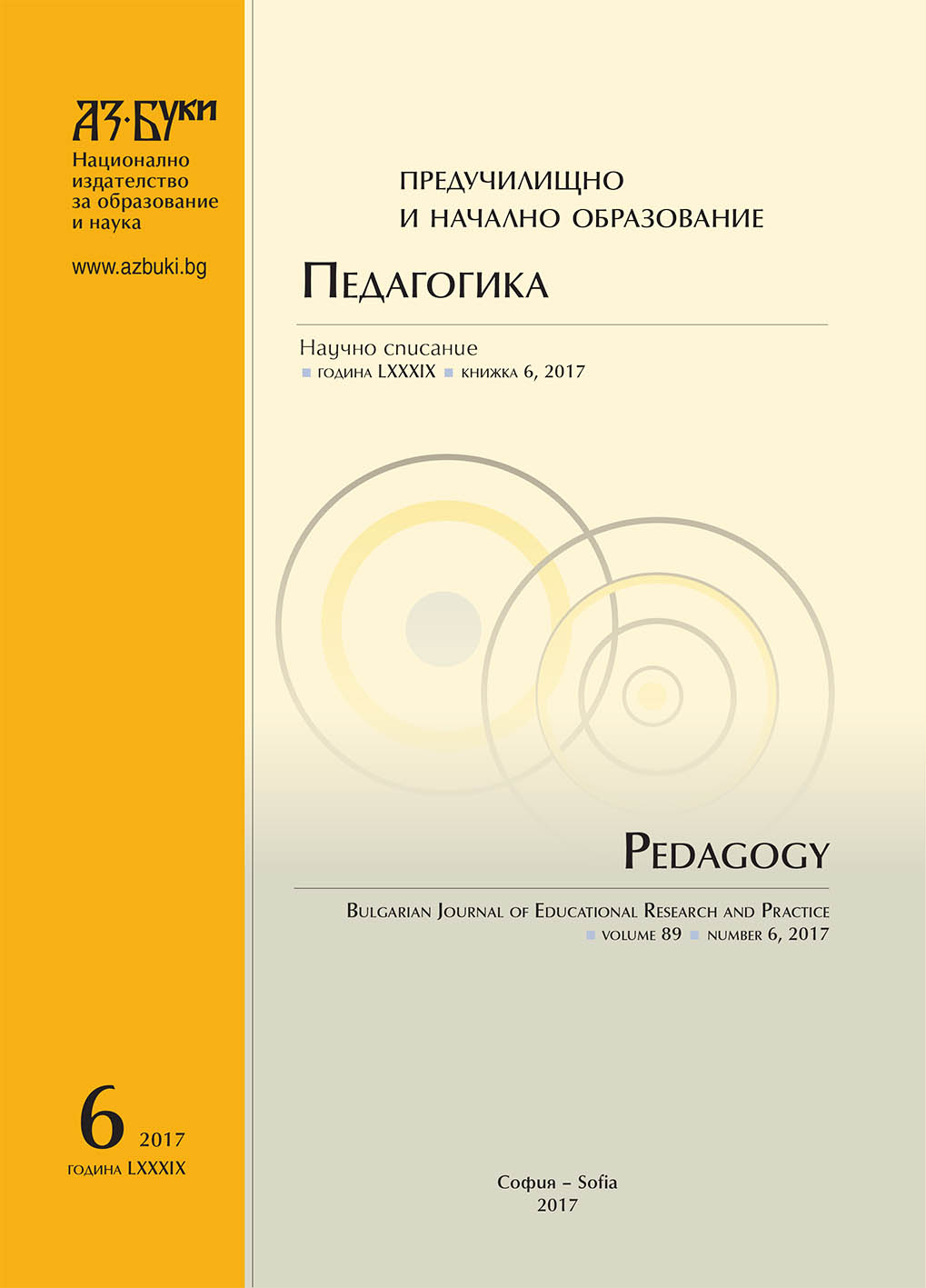
The study examines the values of some students in Zlatitsa Municipality by diagnosing their cognitive activity. In meaningful aspect components, factors, terms and conditions forming the face of their value scope are considered. Some rules for prosperous life, stemming from the teachings of God, are highlighted. The results are recorded, analyzed and described as a real consequence of the modern way of thinking and behavior of young people. There stands out the need for knowledge of God and building a system of values in family and school – based on Orthodox catechism and education.
More...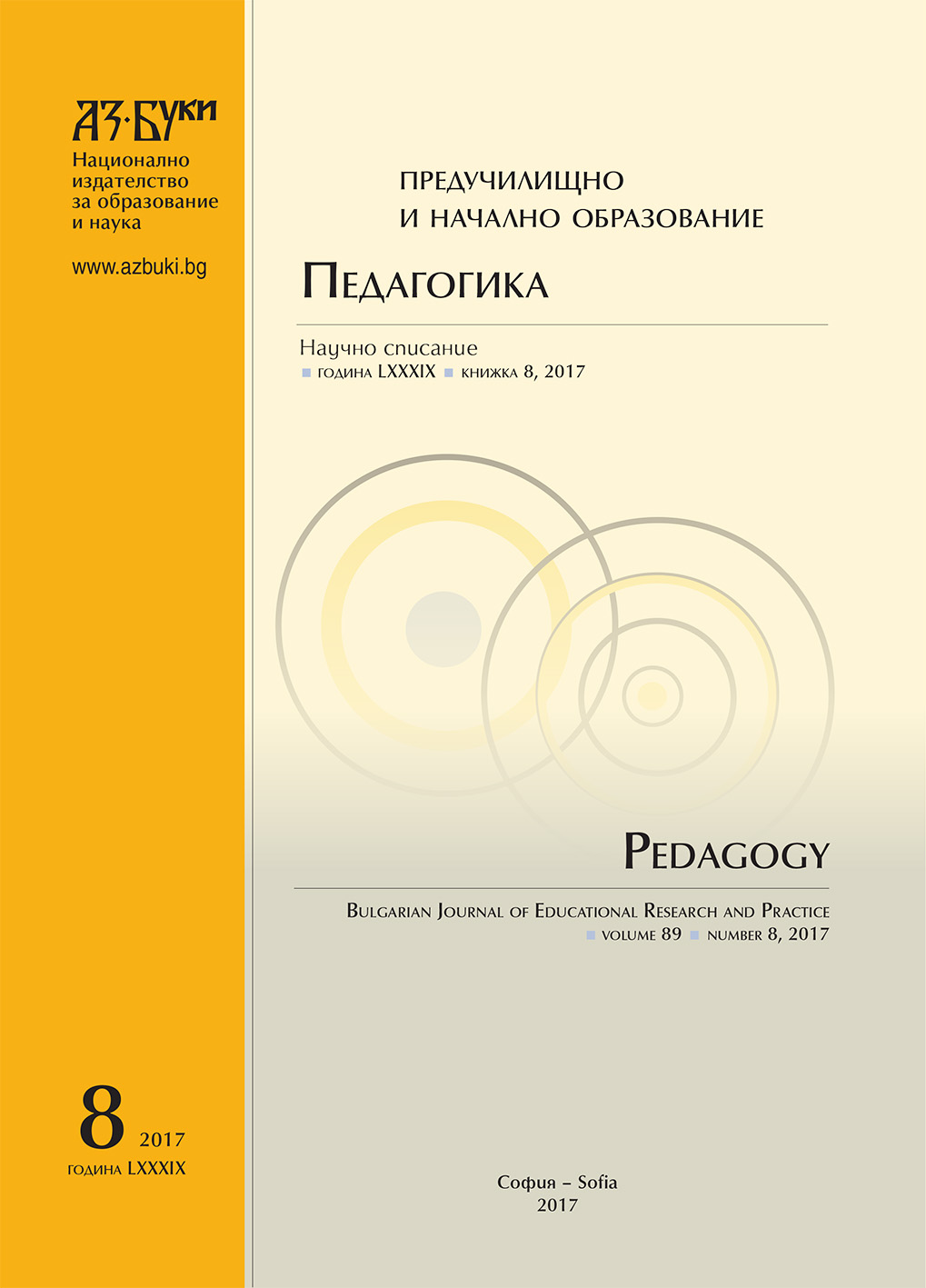
The author supports the thesis that reading has an important place in Bulgarian lessons at primary school level. In support of that are presented practically tested diagnostic tools for measuring reading skills at the beginning and at the end of second class grade.
More...
The timeliness of the problem is seen in the context of the mechanism for stimulating different types of activities with children.More importantly, the structural components highlight:– the transformation of educational strategies by children, as a new type of understanding of the environment in which we live;– the cooperation, which is motivated by common goals with value messages.
More...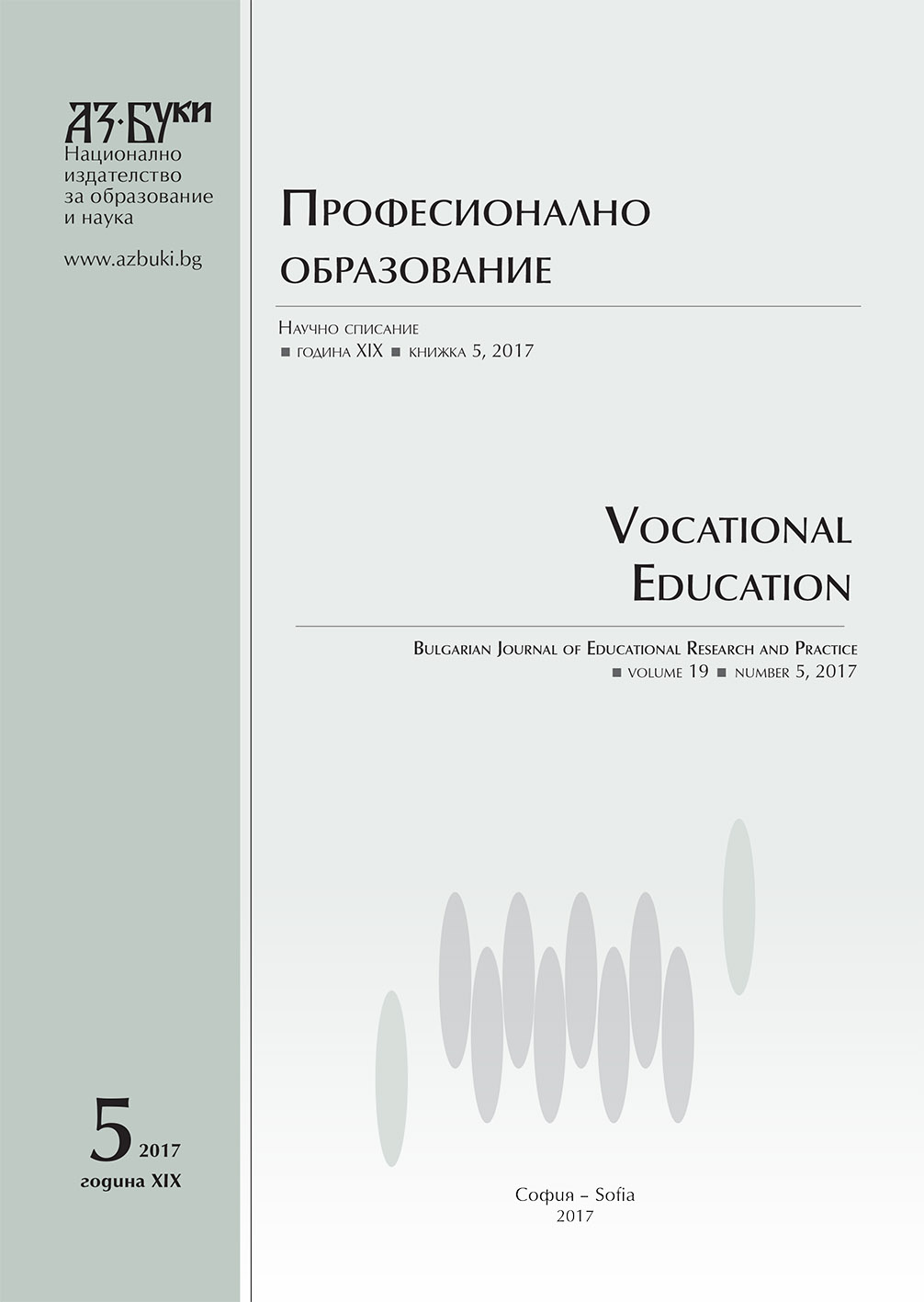
This paper presents a service that is implemented in Cyprus. It consists of three programs and aims at the successful job realization of young people with disabilities. Some of the most important skills and competencies that are provided by the service are described within the text as well as the opportunity the students to have their training period in real working conditions due to the Transition Employment Network that functions as partners of the service activities.
More...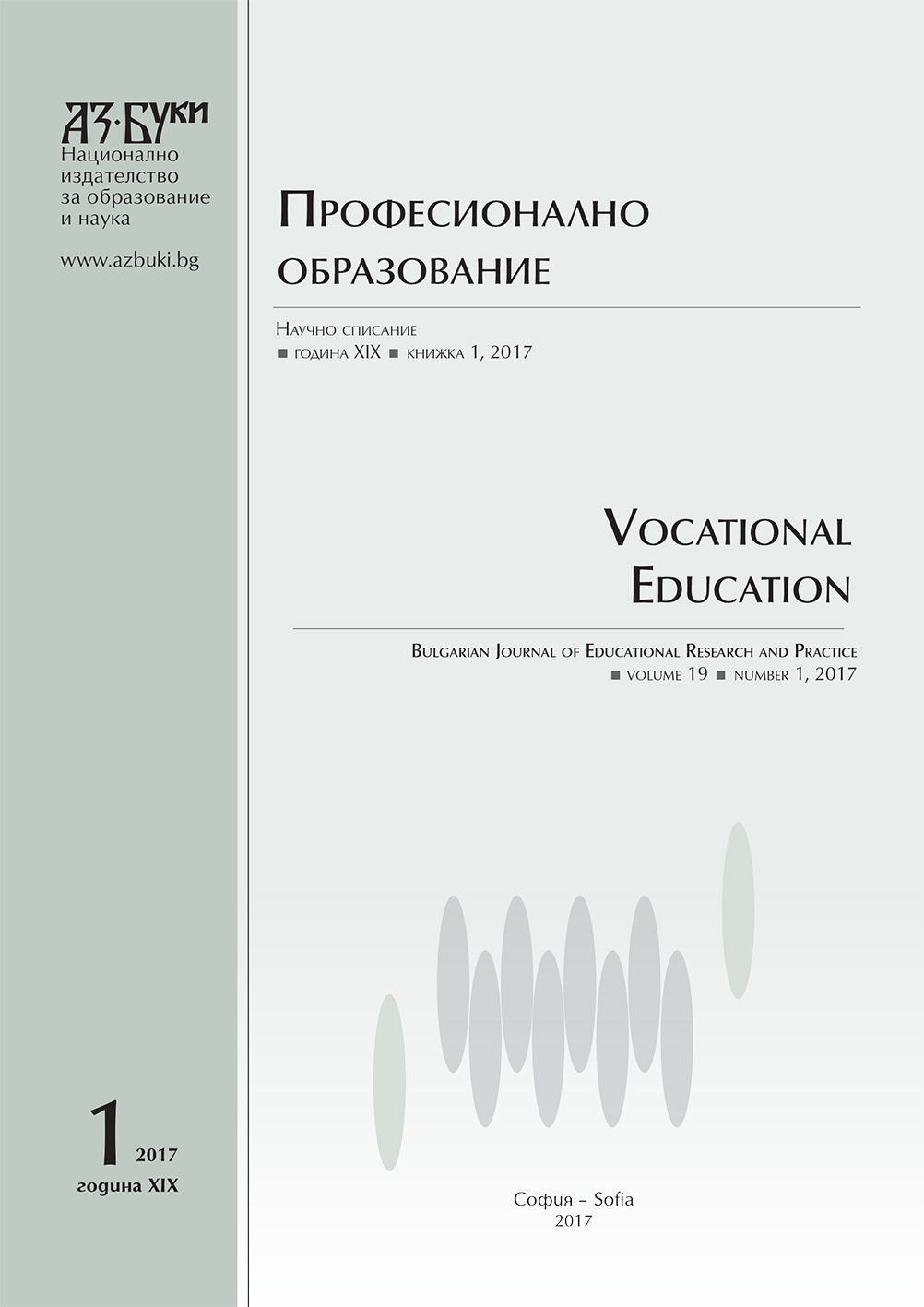
The article shows good practice in the field of foreign language learning in Bulgaria. The author shares some approbated practical methods and case studies in this area. Specific examples for drawing lessons and for evaluation of acquired knowledge are shown.
More...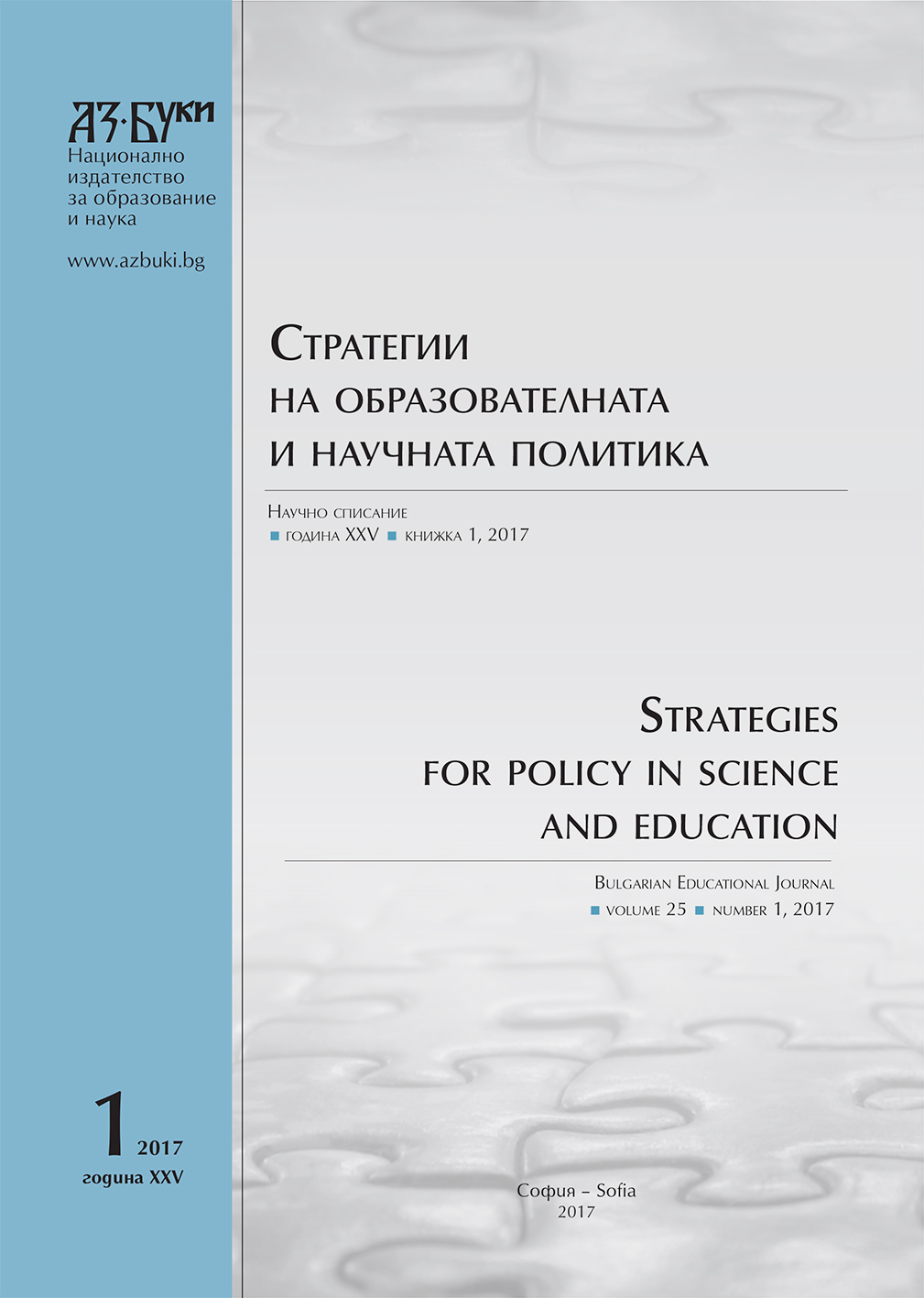
The article analyzes the small and medium sized enterprises (SME), as a central economic subject, carrier and generator of innovations in the modern socio-economic conditions. General analytical conclusions are presented for the key role of SMEs in today’s knowledge economy and outline of their advantages before large enterprises. Object of analysis are the innovative capabilities of SMEs in Europe. Conclusions are made in regards to the necessary measures for the existence of a specific class innovative enterprises, capable of overcoming the barriers in transforming knowledge into market orientated results.
More...
This text highlights an extremely important and serious problem, which concerns the whole development of contemporary students. The name of the problem is lack of dialogue and interaction between the educational and social-pedagogical institutions. It is a fact that today’s educational reality is very different and definitely needs special attention from the pedagogical theory and practice. In school and in the classrooms almost every day we have cases that require serious intervention from specialized social-pedagogical institutions. To be effective, this intervention must be adequate and in time. In specific situations, the teacher is not only completely powerless to respond, but could complicate the situation if acting unprofessional. The article cites a research, conducted for several years. The aim of the study was to confirm or deny the hypothesis that there is no interaction between the educational and social-pedagogical institutions. The research is made through a questionnaire designed for educators working in the field of primary education. The reasons for absence of such interaction could be found equally in both sides. On one hand, the school rarely asks for outside help. On the other hand, the social-pedagogical institutions do not always respond in time, or in the best way. It turns out that the “cold war” in the education of Bulgarian children exists not only between teachers and parents, but also at institutional level - between the capacities that carry professional responsibility for training, education and overall development of the younger generation. Educational interaction is an indispensable condition for achieving positive results in the implementation of these processes. The lack of educational cooperation will not only stop progress, but can cause serious damage in shaping the character.
More...
The article presents the main results of a monitoring of the effectiveness and efficiency of projects, implemented by a selection procedure “Education in a spirit of tolerance and non-discrimination in kindergartens and schools by preserving and developing the cultural identity of children and students from ethnic minorities”. The aim is to be assessed to what extent the implemented projects contributed to achieving the strategic goals of the Centre for Educational Integration of Children and Students from Ethnic Minorities.
More...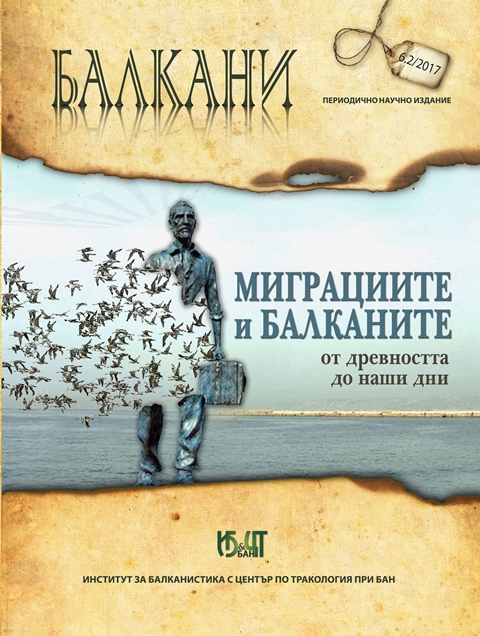
This article strives to demonstrate some of the aspects of Bulgarians’ lives in the indicated district and time period. Their local living lifestyle has been partially examined through the connection between the mobility/immobility of the people, the three forms of exchange of goods between the communities (work, marriage and education) and the national identity.There is a symbiotic connection between the mobile and the immobile population. Periodically, part of the people who are led by material reasons, social hierarchy, exogamy, matrilocalism of the marriage etc., begin to self-identify as Greeks. The rest of the community is self-identified by their Bulgarianism. During the last quarter of 19th century, the ethnical origin still does not limit the diverse individual statuses and roles. By the time of the Balkan war declaring the national identity transforms into a means for (re)defining and updating the internal and the external borders between these groups of Bulgarians, including their relations with the rest of the population within the region.
More...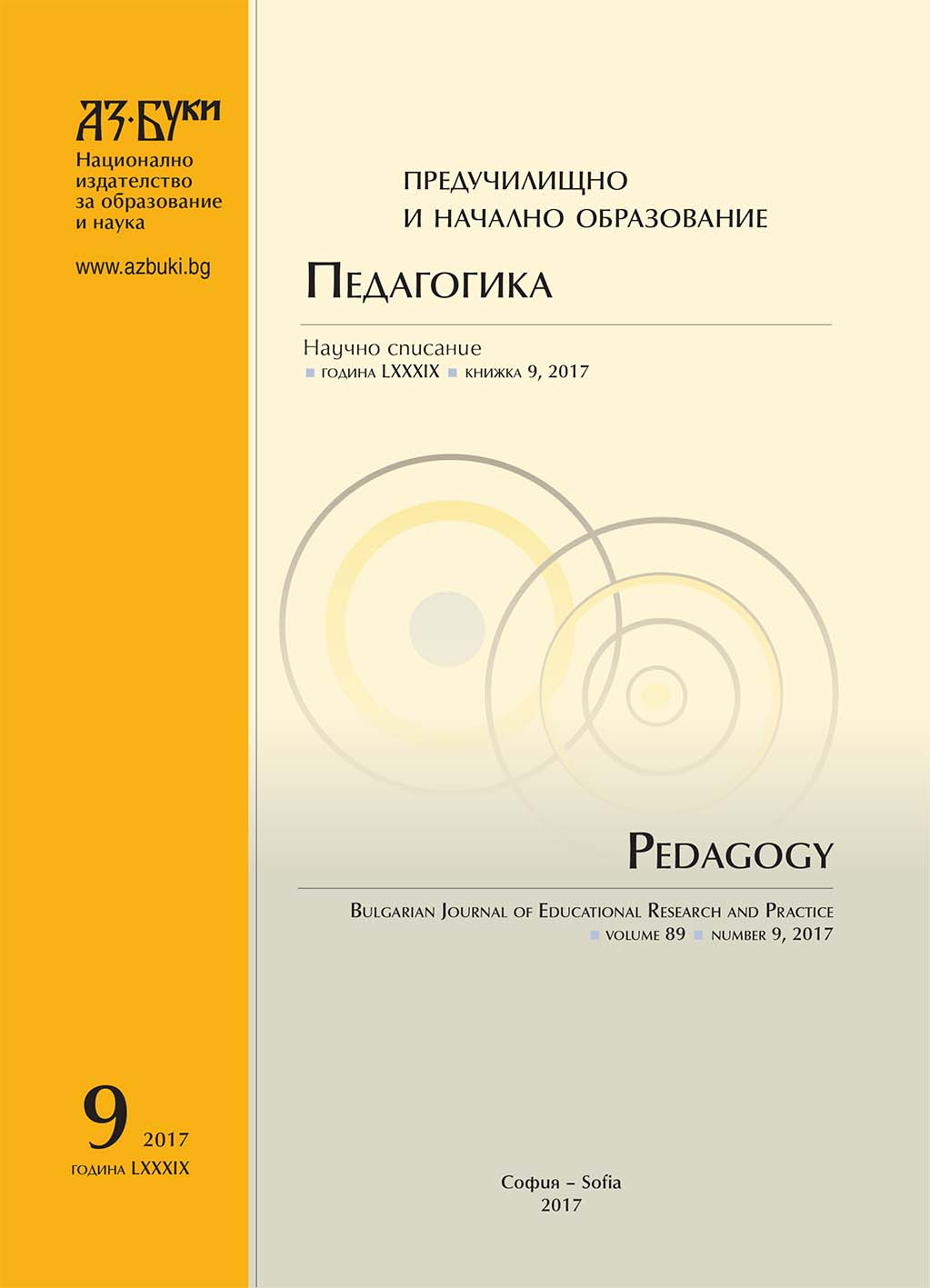
The financial support of the vocational education is said to be one of the major factors for its development. The text shows specific practices, related to the provision of financial resources. The searching of the balance in relation to the financial responsibility between the state, municipalities and commercial-industrial chambers is a subject of research and introducing by legislators, economic and educational figures.
More...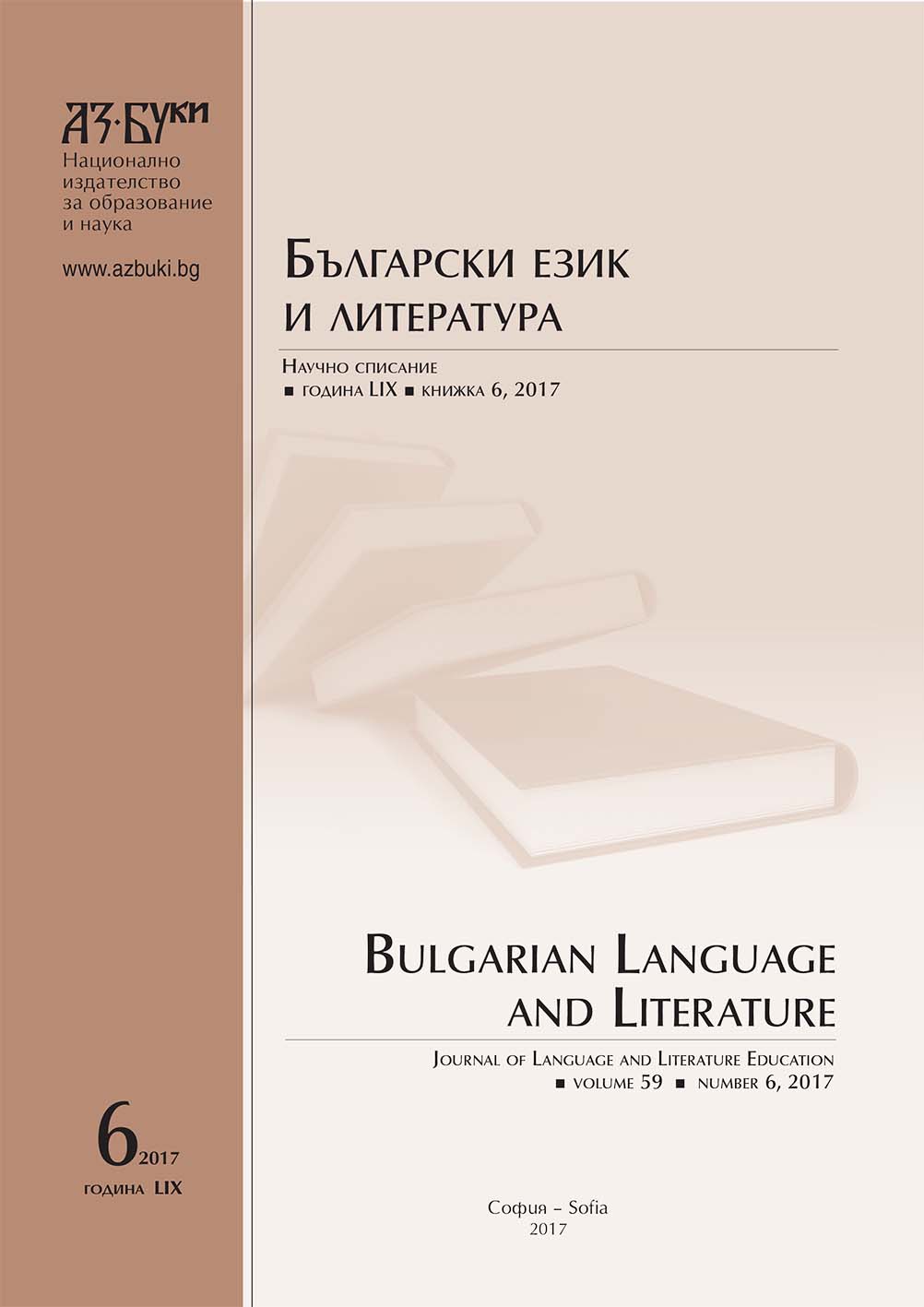
The paper examines the place of dialect speech in contemporary Bulgarian oral communication as well as in the language of literary works included in curricula. The question of the need to study the dialect element in the language, which is related to the perception and analysis of the text is considered. Some examples of learning tasks that can serve to develop these skills are given.
More...
This paper gives an insight into the development of the Bulgarian Language Sunday Schools in the UK as promoters of the mother tongue and culture. The focus is on their features and benefits. In particular, the most important issues related to these Bulgarian organisations (such as the increase of the number of the schools and the reason behind this, their connections with mainstream schools and some of their problems) are discussed. At the same time, it is acknowledged that most of these issues need further in-depth studies.
More...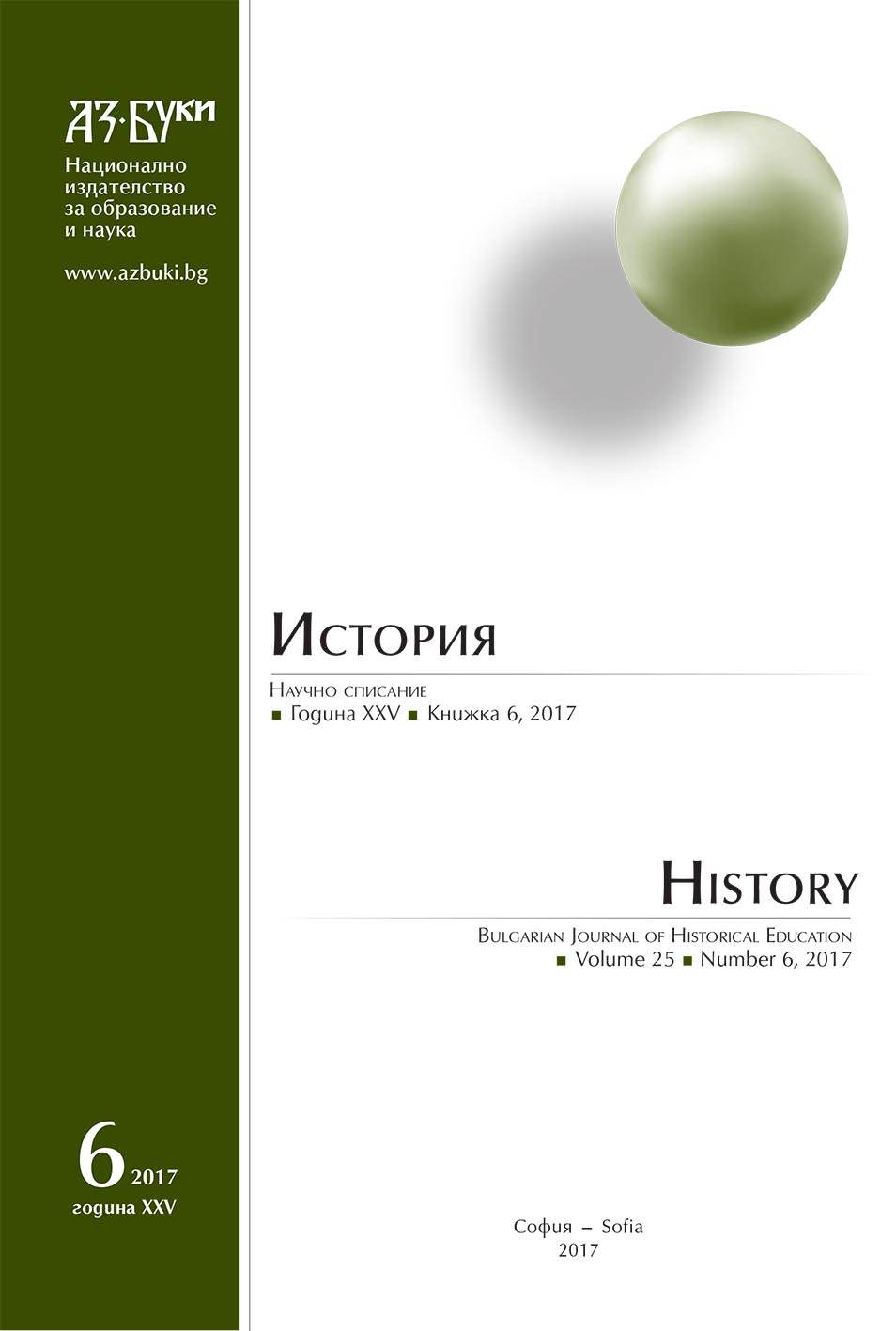
The article focuses on the “translation” of the language of clothing, which is characteristic of Bulgarians in modern language. The accumulated knowledge allows us to try to read the “language of clothing” as “our” ancestors “speak” and “write”. In order to read it, I draw both data about the style of Bulgarian folk clothing and examples of folk tales, ritual practices in a family environment. The aim is to reveal this “translated text” as a typical method of affirming the national identity on a local and national scale.
More...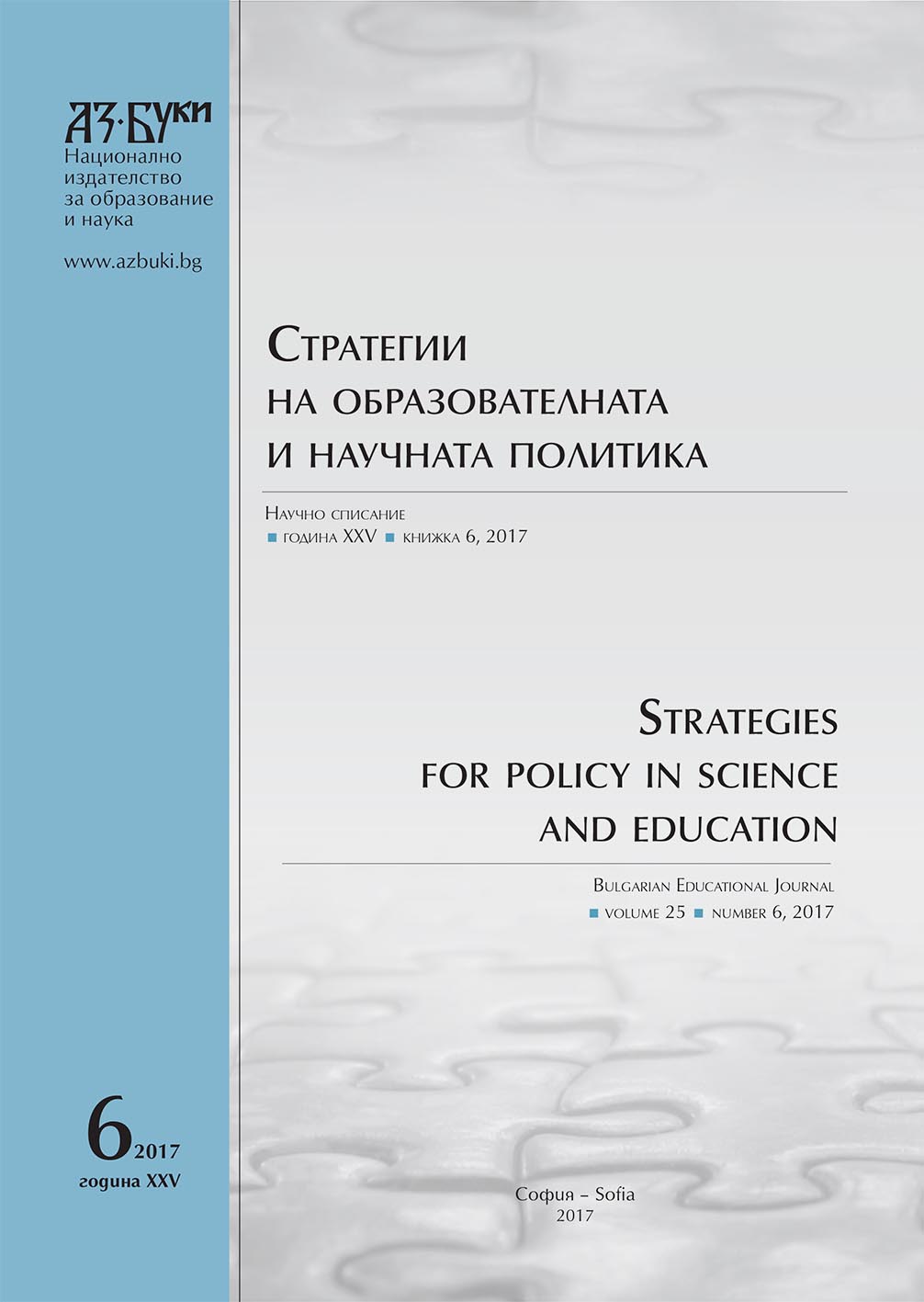
The article presents an analysis of data from International Civic and Citizenship Study (ICCS) 2016. ICCS 2016 includes 24 countries / regions, including 16 in Europe, 5 in Latin America, and 3 in Asia. The Bulgarian study is organized and carried out by the Center for Assessment in Preschool and School Education.
More...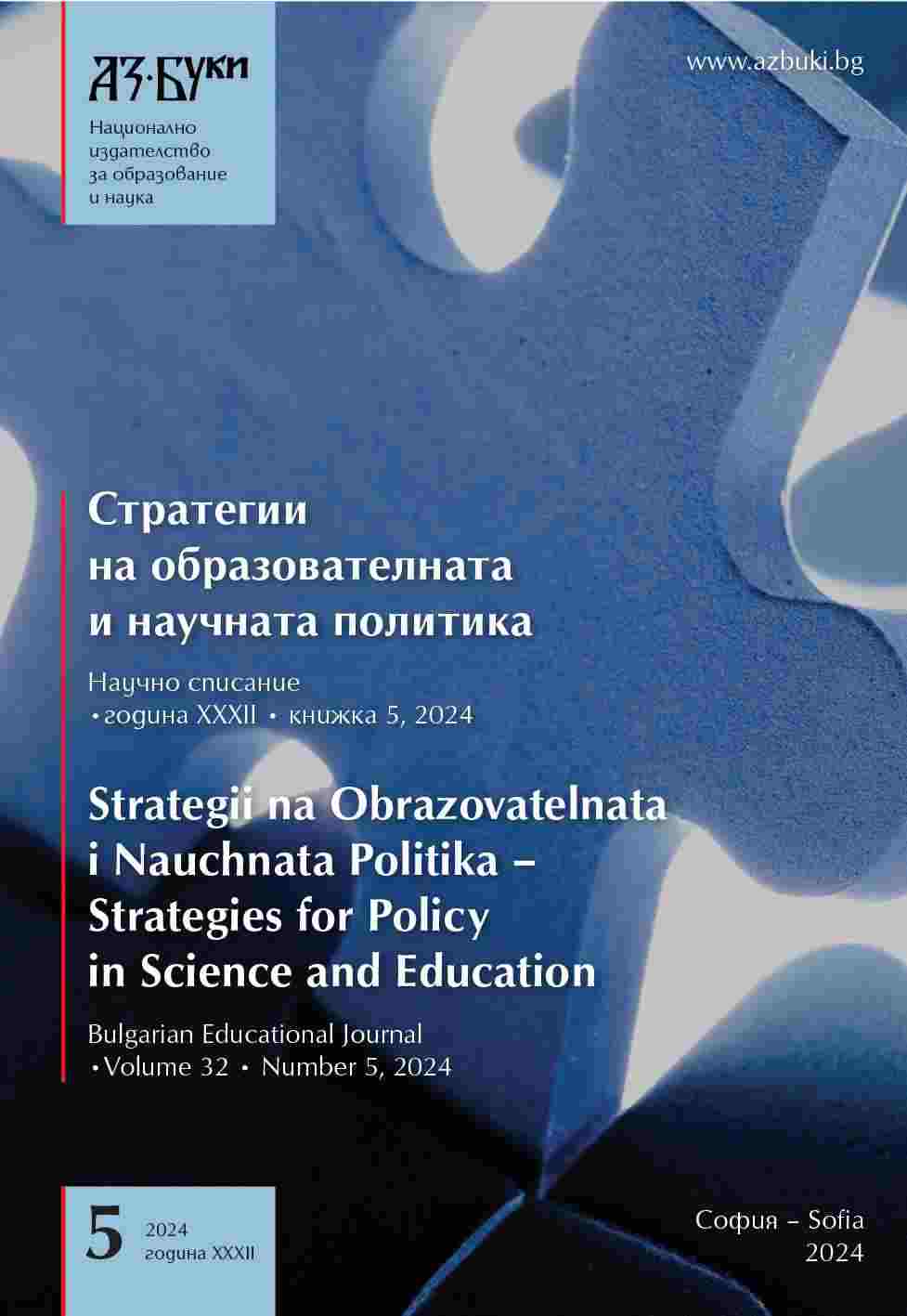
The current paper aims to give a comprehensive exploration of the Life Skills resources and sustainable development and the effectiveness of programs in the general development and positive identity of students in the Albanian educational system. The method used for this study is qualitative with a focus on literature review. Qualitative results revealed that increasing a positive development profile for students in schools impacts decision-making, effective development of interpersonal relations, self-awareness, and emotional management in a life-long education process. The current literature review analysis made us reflect that social support, social competencies, positive identity, and empowerment are the assets with the most specific weight and the highest clinical significance as a form of students’ positive development profile to be considered in future school curricula.
More...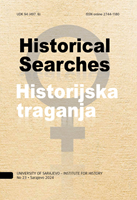
Review of: Ivana Dobrivojević Tomić, Između nebrige i neznanja. Žene, seksualnost i planiranje porodice u Jugoslaviji (1918–1991), Beograd: Arhipelag – Institut za savremenu istoriju, 2022, 276 str.
More...